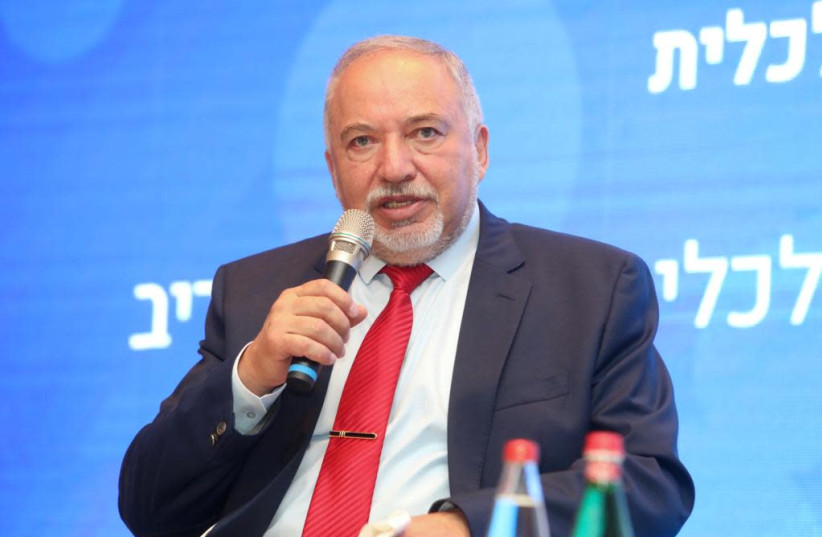The government on Sunday approved an NIS 1.1 billion addition to the budget for pensions of IDF officers. The decision gives the chief of staff the ability to increase future pension rates for officers currently serving in the army by up to 11%, according to a calculation based on how long they served.
The decision was approved along with a new draft law that reduced the age of exemption from IDF service for ultra-Orthodox students from 24 to 21. The proposal was supported by 13 ministers, and seven ministers voted against.
“This decision is about how the state treats the army, how the state treats the people who defend it, people who could develop careers outside and decide to stay, contribute to the state in the military, with much lower salaries than they could do outside,” said IDF Chief of Staff Lt.-Gen. Aviv Kochavi.
Justice Minister Gideon Sa’ar, who opposed the measure, said expanding pensions contradicted the needs of Israel’s economy.
“Israel is in crisis. There is an increase in life expectancy, and pension savings are being cut. Instead of looking at the future of Israel’s economy, we are approving this broad measure. If it included specific benefits for technologists and fighters that would help them, I would support it. But what we are doing today is easy and not connected to reality.”
Meanwhile, some 30% of the Economic Arrangements Law that accompanies the proposed 2021-2022 budget have been removed from the draft legislation following challenges within the coalition.
However, many believe that most of the clauses that were removed were decoys (known in Hebrew as “goats”) that were known to be controversial and expected to be thrown out while taking the attention away from other proposals. This is a common practice in Israel ahead of most budget proposals.
Among the most visible proposals to be removed are the massive NIS 150 billion metro project in the center of the country, which will be advanced as separate legislation, and a planned 40% tax on private medical visits.
Meanwhile, other controversial reforms, including the planned agricultural reforms and increasing the retirement age of women to 65, remain in the budget.
The coalition is working to deliver a final version to Knesset by August 31 so deliberations can start before the holiday season. When the Knesset resumes in October, it will have to approve the budget in three readings by November 4 or the government will be automatically dissolved.
Many more elements will likely be changed or removed before the final version is approved. As Israel has not had a budget in more than three years, the Economic Arrangements Law that has been put forward is possibly the most ambitious and complex document of its type ever.

Following the compromise, Labor Party secretary-general Eran Hermoni charged that other important clauses should have been removed from the budget, like the proposed reform to reduce regulation and bureaucracy in government offices.
“The announcement that the main anti-social ‘reforms’ will remain in the Arrangements Law is a blatant disregard for the social left parties in the government,” Hermoni said. “This is a mistake that will make it very difficult for important efforts to transfer a budget in the Knesset. Liberman acts like he is passing a decision in his Yisrael Beytenu Party, and forgets that he is the finance minister in a unity government that includes parties with different ideological views. He must remember that he needs the Labor Party no less than it needs him.”
Also, Religious Zionist Party leader Bezalel Smotrich called on Levy to remove the kashrut reforms that would introduce competition in the kosher certification field for the first time.
“[This] law has no effect on the budget and manpower standards in government ministries,” Smotrich wrote. “In accordance with your policy [that the Arrangements Law does not include reforms unrelated to the budget], there is no justification for binding the reform in the Arrangements Law in a manner that prejudices the possibility of an actual and in-depth discussion of the issue of kosher reform.”
The latest version of the legislation was negotiated between Knesset Speaker MK Mickey Levy and Finance Minister Avigdor Liberman, in collaboration with coalition chairman Idit Silman and vice-chairman Boaz Toporovsky, as well as coalition faction chairmen.
“The budget that will be brought to the Knesset is a good budget and the Arrangements Law that will now be presented will allow the Knesset to discuss it in a serious and satisfactory manner,” Levy said. “The law contains important reforms that will benefit the citizens of Israel. The other reforms that will be split off will be discussed in the Knesset through a regular legislative track.”
Among the many clauses that were removed from the budget were:
• Charges for canceling doctors’ appointments, and a new deductible charge for seeing health specialists to a doctor and collection of a deductible for a professional doctor in the health system.
• Tax reporting requirements for people holding more than NIS 200,000 of cryptocurrencies.
• A requirement for financial entities to share info about their customers with the Israel Tax Authority.
• Reductions in payment requirements in collecting fines.
• Requirements for citizens to provide contact details as a default for all government bodies. This will be advanced as separate legislation.
• Changes in the rules regarding housing loans and real estate taxation.
